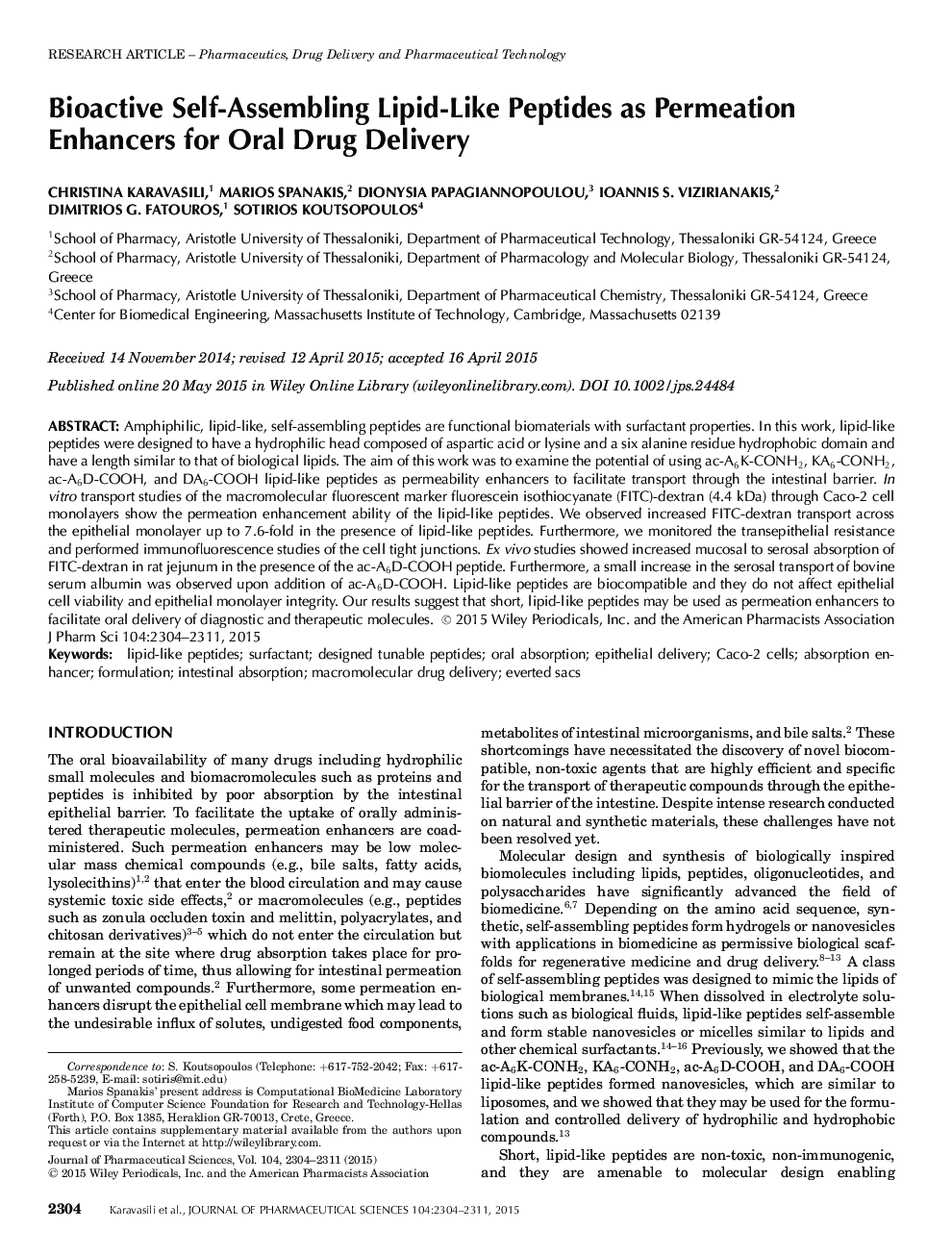| Article ID | Journal | Published Year | Pages | File Type |
|---|---|---|---|---|
| 2484526 | Journal of Pharmaceutical Sciences | 2015 | 8 Pages |
Abstract
Amphiphilic, lipid-like, self-assembling peptides are functional biomaterials with surfactant properties. In this work, lipid-like peptides were designed to have a hydrophilic head composed of aspartic acid or lysine and a six alanine residue hydrophobic domain and have a length similar to that of biological lipids. The aim of this work was to examine the potential of using ac-A6K-CONH2, KA6-CONH2, ac-A6D-COOH, and DA6-COOH lipid-like peptides as permeability enhancers to facilitate transport through the intestinal barrier. In vitro transport studies of the macromolecular fluorescent marker fluorescein isothiocyanate (FITC)-dextran (4.4Â kDa) through Caco-2 cell monolayers show the permeation enhancement ability of the lipid-like peptides. We observed increased FITC-dextran transport across the epithelial monolayer up to 7.6-fold in the presence of lipid-like peptides. Furthermore, we monitored the transepithelial resistance and performed immunofluorescence studies of the cell tight junctions. Ex vivo studies showed increased mucosal to serosal absorption of FITC-dextran in rat jejunum in the presence of the ac-A6D-COOH peptide. Furthermore, a small increase in the serosal transport of bovine serum albumin was observed upon addition of ac-A6D-COOH. Lipid-like peptides are biocompatible and they do not affect epithelial cell viability and epithelial monolayer integrity. Our results suggest that short, lipid-like peptides may be used as permeation enhancers to facilitate oral delivery of diagnostic and therapeutic molecules. <Â S 2015 Wiley Periodicals, Inc. and the American Pharmacists Association J Pharm Sci 104:2304-2311, 2015
Keywords
Related Topics
Health Sciences
Pharmacology, Toxicology and Pharmaceutical Science
Drug Discovery
Authors
Christina Karavasili, Marios Spanakis, Dionysia Papagiannopoulou, Ioannis S. Vizirianakis, Dimitrios G. Fatouros, Sotirios Koutsopoulos,
